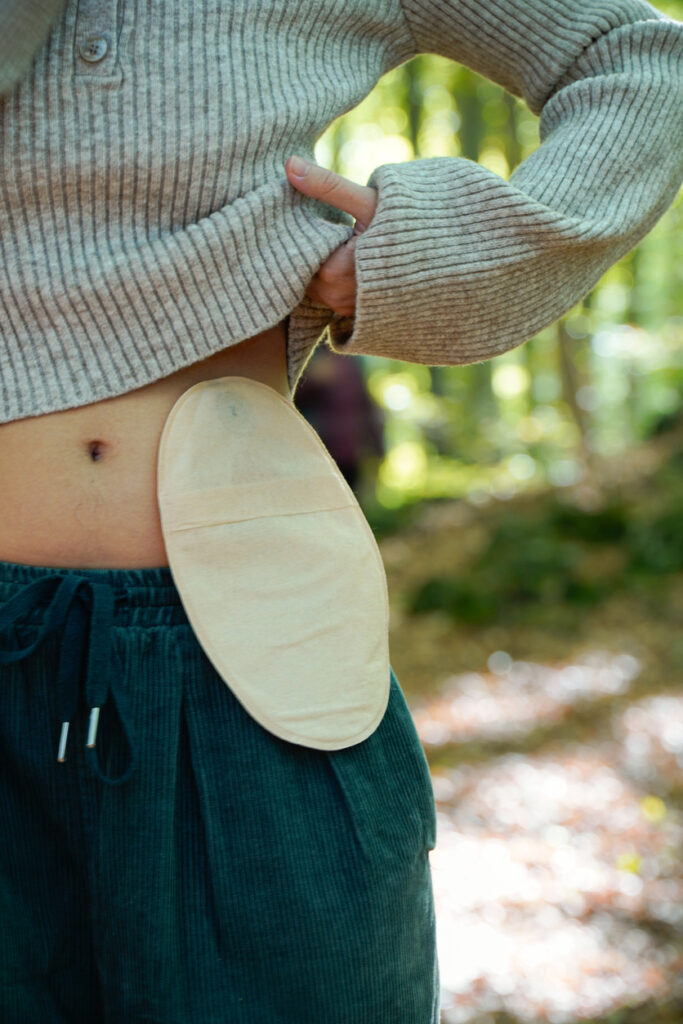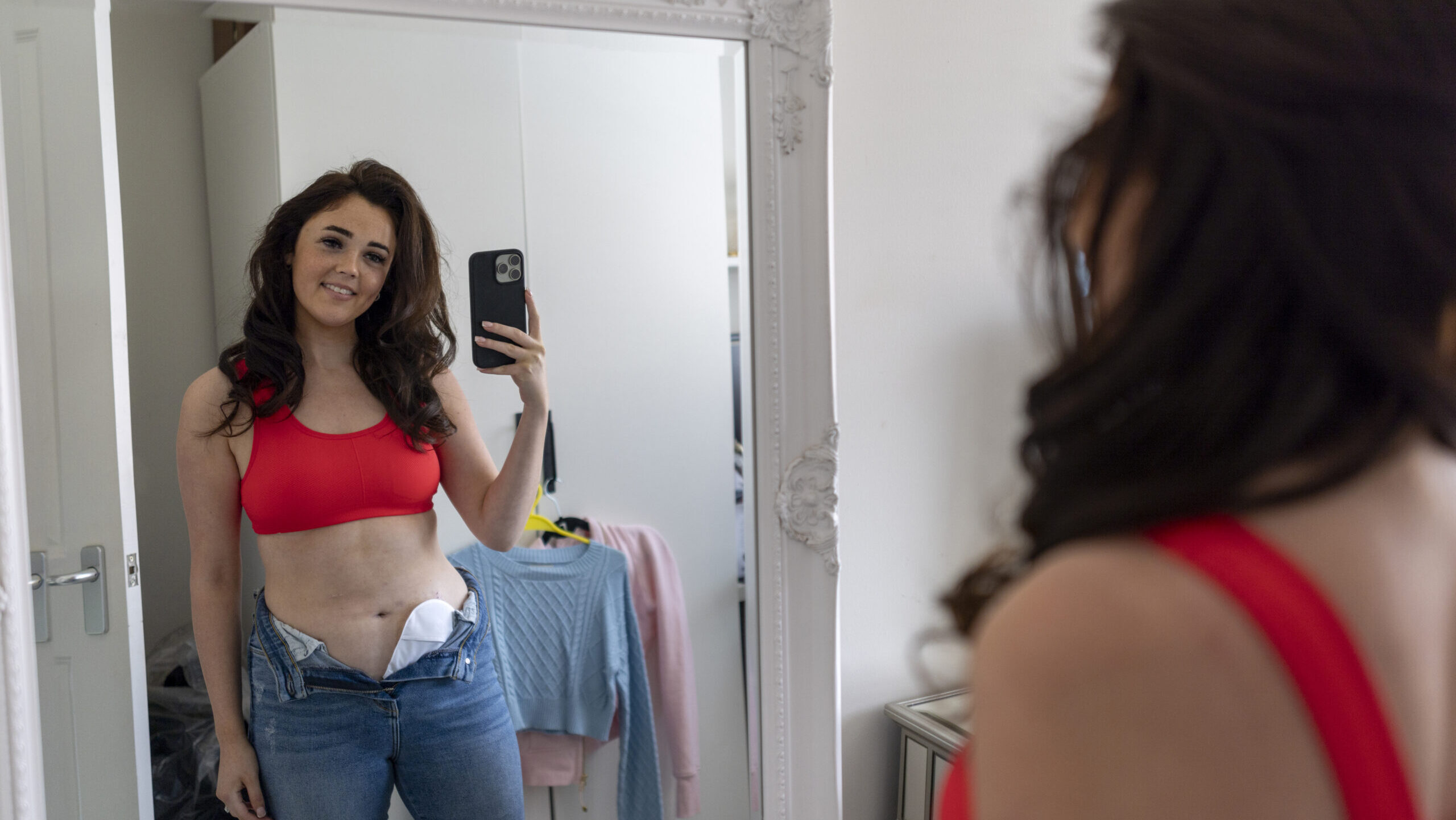“sorry i told u about my IBS, do u still think i’m hot” (myibslife)
If you’re having a #hotgirlswithstomachissues moment that’s affecting your sex life, you’re not alone. Trending hashtags like #girlswithguts, #ostomypride, and #hotgirlswithIBS are leading the movement in destigmatizing young women to openly talk about their gastrointestinal (GI) issues, like irritable bowel syndrome (IBS) and inflammatory bowel disease (IBD).
What’s the difference between IBS and IBD?
IBS is a functional disorder with symptoms like abdominal pain, bloating, and changes to your bowel habits – how the gut functions. On the other hand, IBD involves the chronic inflammation of the GI tracts and includes conditions like Crohn’s disease and ulcerative colitis. It can cause serious damage to your intestines.
In “Grieving Multiple Losses: Experiences of Intimacy and Sexuality of People Living with Inflammatory Bowel Disease”, Dr. Simona Fourie and colleagues explore the impact of IBD on intimacy and sexuality.
This study uncovers how inflammatory bowel disease affects intimacy, proving chronic illness isn’t merely a physical battle – it’s a fight for love, confidence, and connection.
Inflammatory Bowel Disease
IBD is an umbrella term for chronic conditions that cause inflammation in the digestive tract. The two main types of IBD are Crohn’s Disease (CD) and Ulcerative Colitis (UC). While both involve inflammation, CD affects any part of the GI tract from the mouth to the anus, while UC is limited to the colon and rectum.
Symptoms include:
- Severe abdominal pain
- Diarrhea
- Fatigue
- Weight Loss
- Malnutrition
- Rectal pain and bleeding

While “IBD affects men and women equally” the “impact of IBD on women is unique”. It affects significant moments “of a woman’s life including menstruation, sexuality, family planning, and menopause.” According to recent research on females with IBD, fluctuations in ovarian hormones – like during your period – can worsen GI symptoms like diarrhea and abdominal pain.
Additionally, the disease can affect the vaginal and labia health, leading to discomfort during sex. Many women report vaginal dryness and painful intercourse, along with inflammation and pelvic adhesions. Pelvic adhesions are when scar tissue causes organs in the pelvic area like the ovaries, uterus, and intestines to stick together.
Women are more likely to experience erythema nodosum (painful red nodules on the skin) and pyoderma gangrenosum (large, painful ulcers). They tend to suffer more from fatigue and emotional disturbances related to IBD. Emotional disturbances like distress, health anxiety, and overall stress.
“All of these things will make you feel like you’re not worthy, you’re not right, you’re not all there, there’s bits and pieces of me missing.” (Catriona, 43, CD)
Why Look at IBD’s Impact on Sex & Intimacy?
“To the researcher’s knowledge, this is the first qualitative study to explore the experiences and sexuality of those living with IBD.”
Inflammatory Bowel Disease impacts every aspect of someone’s life, including their intimate and sexual relationships. We tend to focus on the physical symptoms of IBD. But, the harm to emotional and psychological well-being – especially concerning intimacy and sexuality – remains under-researched. It’s often diagnosed during young adulthood. A prime time for exploration and establishing romantic relationships, so it’s crucial to recognize how the condition can affect this.
“Dating and the topic of intimacy can be scary for an Ostomate and it shouldn’t be.” (Sara Levitt, Crohn’s Disease & Ileostomy Advocate, Creator, Model, Speaker)
Quick Peek at the Research Methods
Dr. Fourie and colleagues used a phenomenological approach. This was guided by Max van Manen’s framework, which is widely applied in health sciences to interpret people’s experiences. It followed the six-step process:
- Turn to the Experience: They dig into the topic, figure out what’s already known, and focus on specific areas. Such as understanding how body image impacts relationships.
- Investigate Real-Life Experiences: Get information directly from people living with IBD.
- Reflect on Themes: Read through all the stories and find the patterns. Like fear of incontinence during sex or feeling unattractive because of a stoma bag.
- Write the Phenomenological Text: They create a narrative that captures the heart of what these individuals are going through, turning their specific story into something relatable.
- Stay Focused: Balance what participants share and what the researcher thinks it means.
- Put it All Together: The whole story must make sense from start to finish.
The data was collected through semi-structured interviews (in person or over the phone) and anonymous Google Forms. This approach was done to accommodate those uncomfortable with face-to-face conversations. Interviews ranged from 20 to 80 minutes and were all transcribed verbatim.
The study involved 43 participants, all with a self-reported diagnosis of IBD, aged 16 and older. They came from various backgrounds, with the majority (32) female, and most were UK-based.

Living with IBD
While #hotgirlslivingwithstomachissues may bring a dash of humor to the conversation, the reality is these ‘stomach issues’ deeply affect intimacy, sexuality, and relationships. These struggles are not limited to women; every one with IBD faces challenges. The interviewees did not sugarcoat this reality when sharing their stories.
The Body
One of the main themes brought up was feeling disconnected from their bodies. They talked about how their bodies no longer felt like their own. “My labia was swelling up really bad…then the Crohn’s starts eating into that, so then there was like parts of it missing.” shared Catriona, age 43, with CD. This sense of “otherness” made them feel unattractive, leading to a loss of confidence.
The loss of control over bodily function adds another layer of stress. Corine, 23, with UC, admitted, “I would be worried during sex that I would have an accident.” The fear of an unexpected incident can make intimacy incredibly challenging.
Relationships
IBD doesn’t just affect your body – it can strain your relationships. Many felt their illness disrupted their ability to connect with their partners. For some, this led to silent suffering. Florence, 24 (CD), shared, “It was difficult to explain that during a flare-up I can feel unwell and bloated which makes sex uncomfortable.”
Others worried about not being a suitable partner. Denise, 36, with CD, said IBD impacted their “desire to have sex” and thought their relationship would end because of it. For Lisa, age 47 (CD), this fear became a reality, “My husband’s comment at the time was ‘Well, until they’ve fixed you, I’m not going anywhere near you, because the waste disposal unit is too close to the pleasure zone.’”
They expressed their need for an understanding and supportive partner, George, 27 (CD), shared, “I think you need someone to be supportive of you in that aspect.”
“Some partners I felt comfortable telling sooner and others took months and hour long conversations. Each situation was different and you can’t force yourself.” (Sara Levitt)
Missing out on Life
The participants felt they were missing out on the “fullness of life”, especially intimacy and relationships. Many spoke about time lost due to their condition. Like Orla, age 47 with CD, who claimed “It stole a good 10 years from my marriage; it stole my sex life in what should have been my prime.”
Difficulty having sex was a common theme with symptoms like pain and fatigue making intimacy feel impossible. Emily, 42, with CD, explained, “The pain was just phenomenal.” Even when sex was possible, embarrassing symptoms during sex often led to feelings of shame and isolation.
“You just feel disgusting, it’s embarrassing, it’s shameful, and also it makes you feel quite sad, because you think, you know, this isn’t something you’ve chosen to be like.” (Emily, 42, CD)
Infertility or living a childless life weighed heavily upon many interviewees, Catriona shared “I couldn’t look after a child; I couldn’t get up in the middle of the night or even try to feed myself.”
Disclosure, Rejection, and Loneliness
The emotional space people with IBD are living in is often filled with the fear of rejection and loneliness. A major stressor was deciding when and how to talk about their condition with potential partners. Adrian shared their struggle: “I think it took about 10 dates for me to be able to break it to her.”
Fear of rejection was a constant concern for many of them. Klara, 19, with CD, said, “I felt like I’m going to be judged” and admitted a “daunting feeling of like ‘oh, how are they going to react?’”
For some, the anxiety of not being accepted led to loneliness and the ultimate decision to avoid relationships. Gemma, 19, with UC, stated: “I feel helpless, and I can’t let anyone in my life.”

#girlswithguts
Living with IBD is hard – from feeling disconnected from your own body to navigating relationships, intimacy, and sex – it’s a challenge that goes beyond simply managing symptoms or an ‘upset stomach’. The raw, insightful stories shared by participants in this study are a testament to their strength and resilience. And as more share their experiences, we can continue to break down the stigma surrounding chronic illness and sexuality.
Further, Dr. Fourie and colleagues recommend that healthcare professionals become part of the solution by offering more support and education about the impact this condition has on sex lives. It’s clear these issues deserve more attention, and with movements like #hotgirlswithstomachissues, #girlswithguts, and #ostomypride trending, it’s the best time to keep the conversation going.
Whether you’re dealing with #hotgirlswithIBS or the more intense reality of IBD, your experience is valid.



